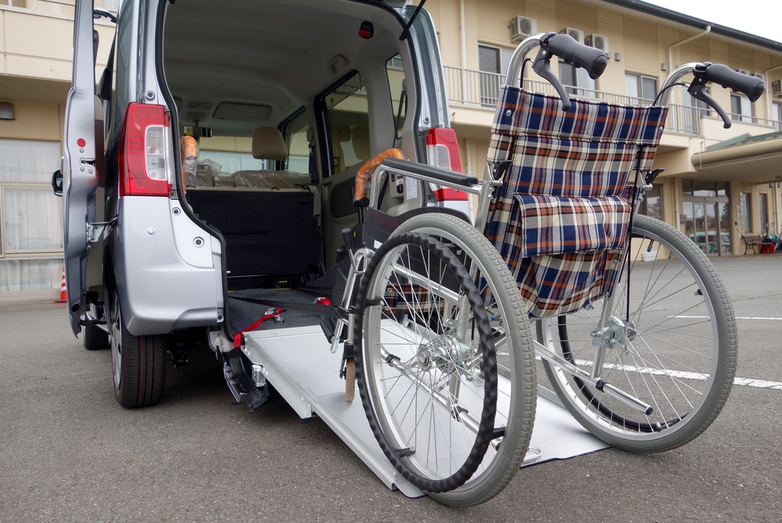Effective Medical Transport Solutions for Clients and Caretakers
The demand for reputable and timely transport options in the clinical field is indisputable, as it straight impacts access to care and patient outcomes. By taking into consideration the diverse variety of remedies offered today, it comes to be obvious that the landscape of clinical transportation is evolving to meet the needs of individuals and caregivers extra successfully.
Ride-sharing Applications
Ride-sharing applications have actually transformed the method individuals access transportation services, providing hassle-free and efficient options for those looking for medical transport. medical transportation. These applications offer an user-friendly system where people and caregivers can easily book trips to medical consultations, making certain timely arrival and reducing the stress and anxiety associated with typical transport methods. By merely inputting the pick-up and drop-off places, customers can schedule a ride tailored to their specific clinical needs, such as wheelchair-accessible cars or assistance for people with mobility difficulties

Non-Emergency Medical Transport

NEMT solutions are made to supply risk-free and reputable transportation for people who do not need emergency healthcare but need assistance obtaining to and from clinical visits, treatments, or treatments. medical transportation. These solutions typically entail specially complete lorries and trained personnel to fit individuals with differing medical requirements, ensuring their wellness during transportation

Telemedicine and Virtual Consultations
Telemedicine and virtual consultations have changed the health care market by supplying remote access to physician for diagnosis and treatment. Specifically in the present era of technological innovations, telemedicine provides a hassle-free and reliable method for individuals to get medical treatment from the convenience of their homes. Through video clip telephone calls, phone consultations, and safe and secure messaging platforms, individuals can get in touch with medical care suppliers, review their symptoms, and receive clinical guidance without the requirement for in-person check outs.
Virtual appointments have confirmed specifically beneficial for clients with minimal movement, those living in remote locations, or individuals with active timetables. This strategy not only conserves time and decreases the need for physical transport yet additionally lessens prospective exposure to contagious ailments, making it a safer choice throughout public health image source and wellness situations such as the continuous COVID-19 pandemic.
Additionally, telemedicine can improve connection of care, permitting doctor to keep track of people' development, readjust treatment plans as essential, and make certain recurring assistance for chronic conditions. Generally, telemedicine and virtual examinations stand for an encouraging solution for enhancing accessibility to healthcare solutions while prioritizing client benefit and security.
Community Volunteer Programs
Area volunteer programs play an important role in supporting various health care campaigns and addressing the demands of underserved populaces. These programs typically contain specialized people that selflessly provide their time and skills to help transportation clients to medical appointments, provide friendship, and deal support with everyday tasks. By taking part in community volunteer programs, people can make a purposeful influence on the lives of patients and caregivers who might lack accessibility to dependable transport or require extra assistance.
Volunteers in these programs go through training to ensure they can give the required care and aid effectively. They play a crucial role in bridging the void between patients, caretakers, and doctor, inevitably boosting the total top quality of treatment got. Furthermore, area volunteer programs promote a feeling of area explanation and uniformity, cultivating links in between people from diverse backgrounds who integrate with a common goal of helping others.
Medical Transport Sychronisation Services
Facilitating smooth transport logistics for clinical visits, control solutions improve the process for patients seeking reputable and prompt transportation solutions. Clinical transportation control solutions play a critical role in making sure that people have access to the required transportation to obtain to and from clinical appointments. These services usually involve coordinating with transportation carriers, scheduling trips, and making sure that patients come navigate here to their visits in a timely manner. By systematizing the control of transport services, individuals can concentrate on their health without the added anxiety of preparing transport.
Moreover, clinical transportation coordination services usually use individualized support customized to the particular demands of each client. This can consist of setting up wheelchair-accessible cars for individuals with mobility obstacles or scheduling reoccuring transportation for people going through regular treatments. By recognizing the unique demands of each person, sychronisation solutions can provide a more efficient and tailored transport experience.
Conclusion
By making use of ride-sharing apps, non-emergency medical transportation, telemedicine, community volunteer programs, and clinical transportation control services, individuals can access the necessary medical care services they need. These options assist improve accessibility to clinical care, minimize transport obstacles, and make certain clients obtain the support they require to preserve their health and wellness.